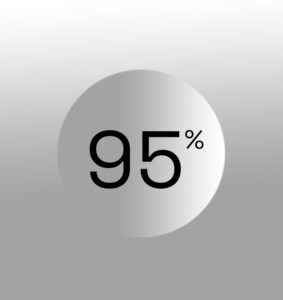Project Assessment
The Project Assessment check provides independent advice to the stakeholders of projects, related to those activities essential for deploying an IT Transformation trajectory within the predetermined time.
It addresses the gaps and needs essential to meet the desired outcome.
Can’t see the forest for the trees
In many cases during the Project Life Cycle, the Project Manager, project leads and team members are drowned into the daily activities, by which the overview of the project might get lost.
- Even if weekly status reports are delivered, the main focus is to get the work done, more specifically to reach the next milestone or stage gate. Reports are in many cases a quick ‘collecting’ or ‘dump’ of data in ppt. To be prepared for the next Project Management meeting. The deeper analyses is often forgotten or not done because of time constraints.
- Tools(Jira, Ms-projects, excel, etc…) are available, which may provide the necessary information about all activities in relationship to resources and time, however, getting the data structured in a meaningful way to support decision making is usually not fully explored.
- An additional point of attention is the current booming IT projects require an in-stream of young (scarce) professionals promptly promoted into lead roles who usually do not have the expertise to pay attention for the bigger picture.
Goal of Project Assessment Check
To give stakeholders an insight of the status of the project from an outer perspective, based on an inquiry to be completed by the Project Manager and Leads.
The outcome of the Inquiry will give the stakeholders:
- View on the actual status in relation to what needs to be delivered in the current stage and next stages
- View on the readiness of the project to enter the next stage(s)
- Gaps which will prevent the project to reach the milestones
- Suggestions/improvements to be implemented to increase the project success rate
Preferred Timing for the Project Assessment Check
Preferable during the development stage. Later is manageable however, implementing the corrective actions might become tight to ensure the deadlines are met.
Is the Project Assessment same as a Project Audit?
No!
The aim of a project audit is to verify whether the project meets the standards of project management
whether it complies with the organisation’s policies, processes and procedures.
The Project Assessment is an external screening which tells whether the project is in a good shape what concerns activities to be done with the available resources and whether the team can reach the next stages in the project life cycle easily or with impediments.
Next to this the Project Assessment is not assessing the budget, it’s about activities and available resources. Of course the results of the assessment and the corrective actions needed may have an impact on the further budget of the project.
Experience
As a senior Test Manager in multi million Dollar projects, with an impact on hundreds or thousands end users, I came often too late into these hight scaled projects.
One of the first activities, entering a project iss performing such an Assessment, where in the most cases it became clear projects are often in a bad shape, because of the above mentioned reasons (time constraint, urge to reach the next stage without keeping helicopter view, young (still unexperienced) team members in key positions.
Unfortunately those projects had to be delayed to ensure the scope was still delivered as initially required by business.
A Project Assessment at the start of a project life cycle could help organizations and their project teams to keep pulse of the actual activities within the projects and to quickly scale up the necessary ingredients to come to a succesful project.
Approach
It is a questionnary-based approach, to be completed by key players in the Project (PM, Test Manager, Change Manager, Stream Leads, Scrum Masters, Product Owners, Release Train Engineers etc…) depending on the roles in the project methodology used.
WEEK 1
The completion of the questionnary
- Approach 1
- PM and Stakeholders provide the ‘Key people’ who will complete the questionnairy;
- Fully self-supported: the information provider will complete the questionnary without any assistance of our team;
- The team provides answers within 1 week;
- Approach 2
- PM and Stakeholders provide the ‘Key people’ who will complete the questionnairy;
- Cyres leads the key people individually through the questionnairy to ensure the data is ‘fully’ provided;
- Time frame of 1 week: Cyres sets up meetings with all the involved team members or their delegates.
WEEK 2
Processing of data and Feedback
- As well as for Approach 1 and 2 we require 3 days to process the received data.
- Report Communication: 2 days to bring communication within the Project team and Stakeholders. This communication encompasses:
- Status Report
- Possible gaps and impediments
- Suggestions of corrective actions, next steps
Category:
Date:
November 9, 2022








